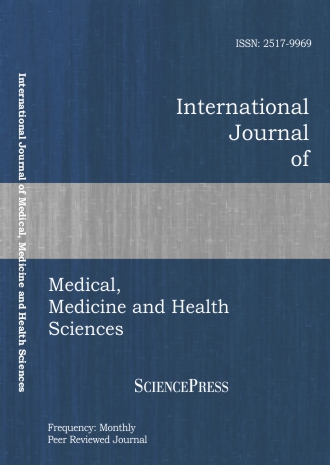
Scholarly
Volume:7, Issue: 9, 2013 Page No: 518 - 525
International Journal of Medical, Medicine and Health Sciences
ISSN: 2517-9969
Enhanced Differentiation of Stromal Cells and Embryonic Stem Cells with Vitamin D3
In-vitro mouse co-culture of E14 embryonic stem cells
(ESCs) and OP9 stromal cells can recapitulate the earliest stages of
haematopoietic development, not accessible in human embryos,
supporting both haemogenic precursors and their primitive
haematopoietic progeny. 1α, 25-Dihydroxy-vitamin D3 (VD3) has
been demonstrated to be a powerful differentiation inducer for a wide
variety of neoplastic cells, and could enhance early differentiation of
ESCs into blood cells in E14/OP9 co-culture. This study aims to
ascertain whether VD3 is key in promoting differentiation and
suppressing proliferation, by separately investigating the effects of
VD3 on the proliferation phase of the E14 cell line and on stromal
OP9 cells.The results showed that VD3 inhibited the proliferation of
the cells in a dose-dependent manner, quantitatively by decreased cell
number, and qualitatively by alkaline-phosphatase staining that
revealed significant differences between VD3-treated and untreated
cells, characterised by decreased enzyme expression (colourless
cells). Propidium-iodide cell-cycle analyses showed no significant
percentage change in VD3-treated E14 and OP9 cells within their G
and S-phases, compared to the untreated controls, despite the
increased percentage of G-phase compared to the S-phase in a dosedependent
manner. These results with E14 and OP9 cells indicate that
adequate VD3 concentration enhances cellular differentiation and
inhibits proliferation. The results also suggest that if E14 and OP9
cells were co-cultured andVD3-treated, there would be furtherenhanced
differentiation of ESCs into blood cells.